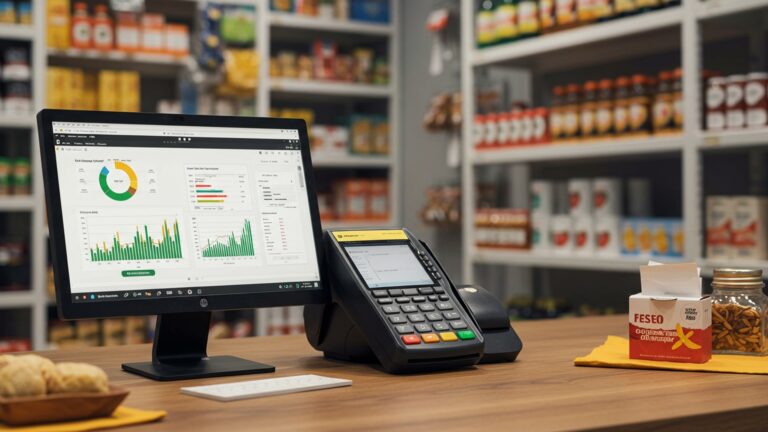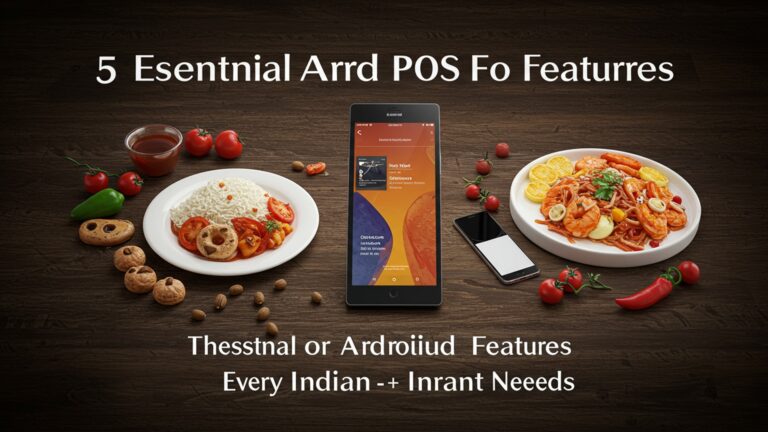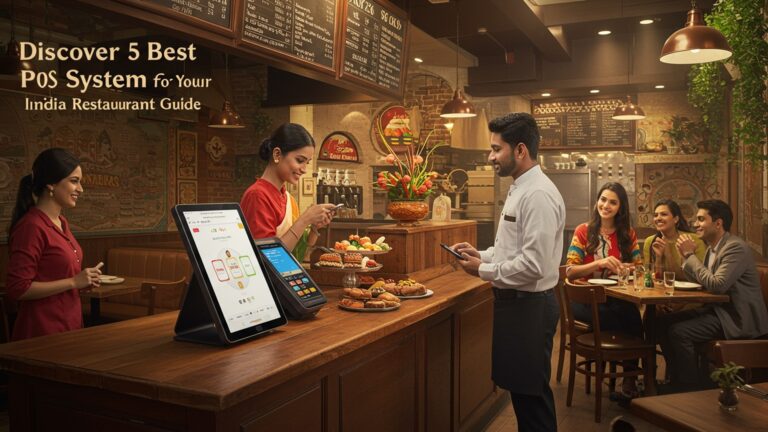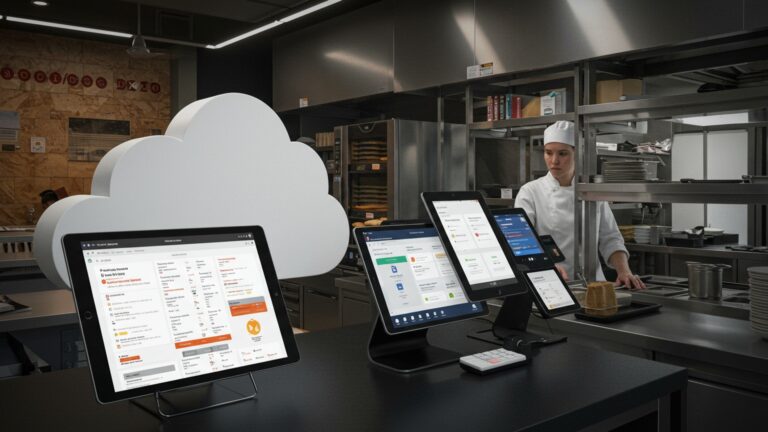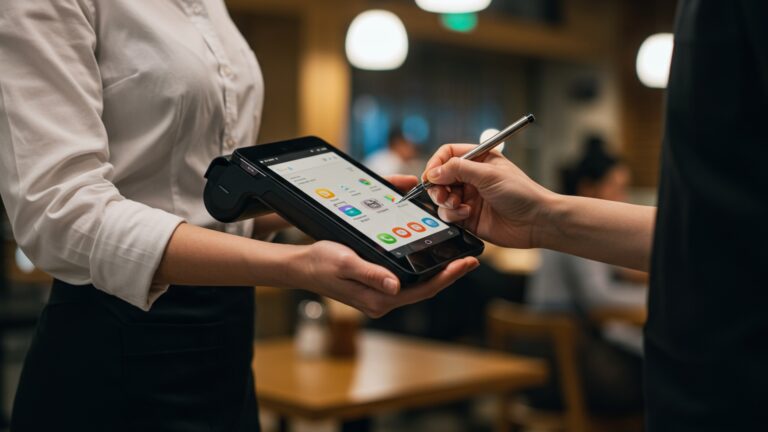Learn 7 Essential POS Software Tips for India Cloud Kitchen Success
India’s cloud kitchen landscape is fiercely competitive, with operators juggling multiple brands, intricate menus. high-volume orders across platforms like Zomato and Swiggy. Navigating this dynamic environment demands more than just culinary skill; it requires robust technological infrastructure to ensure profitability and seamless operations. Mastering your POS software for cloud kitchens India is no longer optional, it’s the strategic core for success. Effective POS systems now integrate real-time inventory tracking, multi-brand order consolidation. crucial sales analytics, transforming raw data into actionable insights for menu optimization and reducing food waste, directly impacting the bottom line in this high-growth sector.
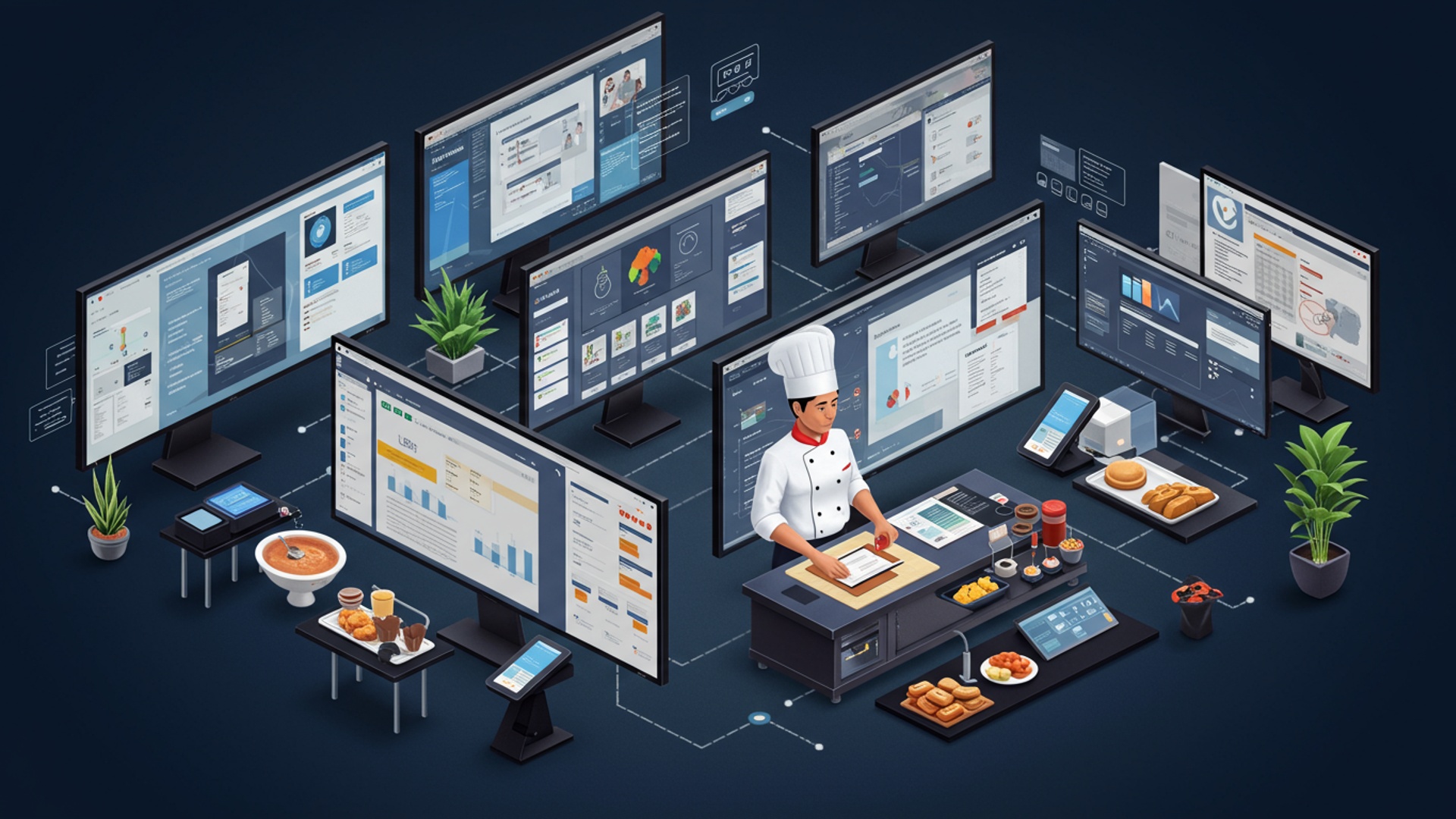
Understanding the Cloud Kitchen Landscape and POS Software
India’s food delivery market is booming, giving rise to an innovative business model: the cloud kitchen. Also known as ghost kitchens or dark kitchens, these are food preparation facilities that operate solely for delivery, without a physical dining space. They leverage online ordering platforms and delivery services to reach customers. This model offers significant advantages, including lower overheads, greater flexibility. the ability to test multiple brands from a single location. But, this delivery-centric operation also presents unique challenges, particularly in managing a high volume of orders from various aggregators, tracking inventory across multiple virtual brands. analyzing performance data.
This is where robust POS software for cloud kitchens India becomes indispensable. A Point of Sale (POS) system is more than just a cash register; it’s the central nervous system of your cloud kitchen, integrating various operations from order reception to inventory management, staff scheduling. sales reporting. For cloud kitchens, a specialized POS system is critical because it needs to handle complexities like integrating with multiple food delivery apps (Zomato, Swiggy, etc.) , managing orders for several virtual brands simultaneously. providing real-time data crucial for making agile business decisions.
1. Master Seamless Order Aggregation and Management
One of the biggest operational hurdles for cloud kitchens in India is juggling orders from numerous food delivery platforms. Each platform operates independently, often requiring separate tablets or devices, leading to potential missed orders, manual data entry errors. a chaotic kitchen environment. The right POS software for cloud kitchens India should act as a central hub for all incoming orders.
-
- Unified Order Dashboard
A good POS system consolidates all orders from various aggregators (e. g. , Zomato, Swiggy, Dunzo), your own website. direct calls into a single, intuitive interface. This eliminates the need for multiple devices and simplifies order tracking. For example, a cloud kitchen operator in Bangalore using a unified dashboard can instantly see an order from Zomato for their ‘Biryani Bliss’ brand and another from Swiggy for ‘Pizza Paradise’ side-by-side, ensuring no order is overlooked.
-
- Automated Order Routing
Once an order arrives, the POS should automatically send it to the relevant kitchen section or KDS (Kitchen Display System), reducing manual intervention and speeding up preparation times. This ensures that the pizza order goes to the pizza station and the biryani order to the biryani section, optimizing workflow.
-
- Real-time Status Updates
The system should allow you to update order statuses (e. g. , accepted, preparing, ready for pickup, dispatched) which can then be communicated back to the aggregator platforms and, in some cases, directly to the customer. This transparency enhances customer satisfaction and reduces calls to the kitchen.
Consider a scenario where a popular cloud kitchen in Mumbai handles hundreds of orders during peak dinner hours. Without an integrated POS, they’d need multiple staff members just to monitor tablets and manually input orders. With a specialized POS, one person can oversee the entire order flow, ensuring efficiency and accuracy.
2. Optimize Inventory Tracking and Waste Reduction
For cloud kitchens, where margins can be tight, efficient inventory management is paramount. Without a dining area, every ingredient needs to be accounted for. waste must be minimized. The right POS software for cloud kitchens India provides granular control over your stock.
-
- Real-time Stock Monitoring
The POS system should automatically deduct ingredients from your inventory as orders are processed. This gives you an accurate, real-time picture of your stock levels. Imagine a Delhi-based cloud kitchen that sells 50 chicken biryanis daily. The POS can track the exact amount of chicken, rice. spices used for each order, alerting you when stock runs low.
-
- Recipe Management
Input detailed recipes with precise ingredient quantities into your POS. This ensures consistency in food preparation and accurate inventory deductions. If your ‘Butter Chicken’ recipe calls for 200g of chicken and 50ml of cream per portion, the POS will reflect this usage precisely.
-
- Automated Purchase Orders
Based on historical sales data and current stock levels, some advanced POS systems can even generate automated purchase orders, streamlining your procurement process and preventing stockouts or overstocking.
-
- Waste Tracking
A crucial feature for profitability, the POS should allow you to log food waste due to spoilage, over-preparation, or errors. Analyzing this data helps identify patterns and implement strategies to reduce waste, directly impacting your bottom line. A study by the Food Waste Index Report 2021 indicates significant food waste in India; a smart POS can help cloud kitchens contribute to reducing this.
A personal anecdote from a cloud kitchen owner in Hyderabad highlighted how they reduced their monthly food spoilage by 15% simply by using their POS to track ingredient usage and expiration dates more rigorously. This translated into thousands of rupees saved.
3. Leverage Data Analytics for Informed Decision Making
In the data-driven world of cloud kitchens, every transaction is a potential goldmine of insights. A powerful POS software for cloud kitchens India doesn’t just process orders; it collects, analyzes. presents data in actionable reports, allowing you to make strategic decisions.
-
- Sales Performance Reports
comprehend what’s selling, when. through which platform. Identify your peak hours, most popular dishes. underperforming menu items. This allows you to optimize staffing, promotions. menu offerings. For instance, if your POS data shows that your ‘Paneer Tikka’ sells exceptionally well on weekends via Swiggy, you can allocate more resources to its preparation and run targeted promotions on that platform.
-
- Menu Engineering
Use sales data to engineer your menu effectively. Identify high-profit, high-popularity items and vice versa. You might decide to discontinue low-profit, low-popularity items or adjust pricing for others.
-
- Customer Insights
While direct customer interaction is limited, the POS can track repeat customers (if integrated with loyalty programs), average order values. preferred dishes. This helps tailor marketing efforts.
-
- Aggregator Performance Comparison
Compare the performance of different food delivery aggregators. Which platform brings in the most orders? Which has the highest average order value? This can inform your marketing spend and relationships with these platforms.
One cloud kitchen chain in Pune used their POS analytics to discover that a particular virtual brand was performing poorly on one aggregator but excelling on another. They adjusted their marketing strategy, focusing their efforts on the more successful platform, leading to a significant increase in that brand’s sales.
4. Streamline Staff Management and Performance Tracking
Even without a front-of-house, managing kitchen staff efficiently is crucial for a cloud kitchen’s success. A comprehensive POS software for cloud kitchens India extends its capabilities to human resources, albeit in a focused manner.
-
- Time and Attendance
Track staff clock-ins and clock-outs, ensuring accurate payroll processing and monitoring labor costs. This is particularly useful for kitchens operating in shifts.
-
- Role-Based Permissions
Assign different access levels to staff based on their roles. A chef might have access to the KDS and recipe management, while a manager has full access to sales reports and inventory. This enhances security and accountability.
-
- Performance Monitoring
Some advanced POS systems can track individual staff performance, such as average preparation times for specific dishes or order accuracy rates. This data can be invaluable for training and performance reviews.
-
- Shift Scheduling Integration
While not all POS systems offer full-fledged scheduling, many integrate with third-party tools or provide basic functionalities to help managers plan shifts based on anticipated demand (derived from sales data).
A cloud kitchen operator in Chennai shared how their POS system, by tracking preparation times, helped them identify bottlenecks in their kitchen workflow. They realized one station was consistently slower, prompting them to provide additional training and reallocate staff, significantly improving their overall order fulfillment speed.
5. Enhance Customer Relationship Management (CRM) and Loyalty Programs
Building customer loyalty is challenging for cloud kitchens due to the lack of direct interaction. But, a smart POS software for cloud kitchens India can bridge this gap by facilitating indirect CRM and loyalty initiatives.
-
- Customer Database
If orders come through your own website or direct calls, the POS can build a customer database, storing contact details, order history. preferences. This allows for personalized marketing.
-
- Loyalty Program Integration
Implement loyalty programs where customers earn points or receive discounts on future orders. The POS can track these points and apply rewards automatically. For example, a cloud kitchen might offer a 10% discount after every 5th order placed directly through their portal.
-
- Feedback Collection
While primarily through aggregators, some POS systems can integrate with direct feedback mechanisms or allow you to send follow-up emails for reviews, helping you comprehend customer satisfaction.
-
- Targeted Promotions
Based on purchase history, you can send targeted promotions. If a customer frequently orders vegetarian meals, you can send them a special offer on a new vegetarian dish.
A cloud kitchen specializing in regional Indian cuisine in Bangalore successfully implemented a loyalty program through their POS. They observed a 20% increase in repeat direct orders within three months, showcasing the power of even indirect CRM in the cloud kitchen model.
6. Facilitate Multi-Kitchen and Multi-Brand Management
Many successful cloud kitchen businesses operate multiple virtual brands from a single kitchen, or even manage several kitchen locations across a city. The right POS software for cloud kitchens India is designed to handle this complexity with ease.
-
- Centralized Management
Manage all your brands and kitchen locations from a single dashboard. This means you can view sales, inventory. staff data for ‘Brand A’ and ‘Brand B’ (operating from the same kitchen), or for ‘Kitchen 1’ and ‘Kitchen 2’ (different locations), without switching systems.
-
- Brand-Specific Menus and Pricing
Easily create and manage distinct menus, pricing. promotions for each virtual brand. The POS ensures that orders for ‘Brand X’ display its specific menu items and prices, keeping operations clear and separate.
-
- Consolidated Reporting
Generate consolidated reports that show the overall performance of your entire cloud kitchen operation, as well as individual reports for each brand or location. This helps in identifying which brands are most profitable and which locations are performing best.
-
- Inventory Allocation
If multiple brands share ingredients from a common pantry, the POS can help track and allocate inventory effectively, preventing stock conflicts between brands.
Consider a growing cloud kitchen group in Delhi that runs five virtual brands from two different kitchen locations. Their specialized POS allows the CEO to log in and instantly see the real-time sales performance of ‘Gourmet Burgers’ from Kitchen A, ‘Healthy Bowls’ from Kitchen B. the consolidated financial picture for the entire group, all from one interface. This level of oversight is impossible with generic POS systems.
7. Ensure Robust Payment Processing and Financial Reporting
Seamless and secure payment processing is the backbone of any food business. cloud kitchens are no exception. Beyond just taking money, the POS software for cloud kitchens India plays a vital role in financial reconciliation and reporting.
-
- Integrated Payment Gateways
The POS should integrate with various online payment gateways (e. g. , PayU, Razorpay) and potentially offline payment methods (e. g. , UPI, cash on delivery for direct orders). This ensures smooth transactions for customers.
-
- Automated Reconciliation
One of the most time-consuming tasks for cloud kitchens is reconciling payments from various aggregators, which often deduct commissions before payout. A good POS can help automate or significantly simplify this reconciliation process by tracking gross sales, aggregator commissions. net payouts.
-
- Comprehensive Financial Reports
Generate detailed reports on daily, weekly, or monthly sales, revenue, expenses. profitability. These reports are crucial for accounting, tax filing. understanding the financial health of your business.
-
- GST Compliance
For businesses in India, GST compliance is critical. The POS should be capable of generating GST-compliant invoices and reports, simplifying tax obligations.
A cloud kitchen accountant in Bangalore once mentioned how their previous manual reconciliation process took days at the end of each month. After implementing a POS with robust financial reporting, this task was reduced to a few hours, freeing up valuable time and reducing the risk of errors. This highlights the operational efficiency and financial clarity a tailored POS brings.
Conclusion
Embracing the right POS software is no longer a luxury but a fundamental necessity for any cloud kitchen aspiring for success in India’s competitive culinary landscape. Having witnessed the incredible growth of digital-first food businesses, I can personally attest that seamless operations, from order management to delivery integration, truly set successful ventures apart. Don’t just implement a system; leverage its data analytics capabilities to grasp peak hours, popular dishes. inventory needs, much like a master chef precisely sourcing ingredients. This proactive approach, aligning with current trends like contactless dining and swift aggregators such as Zomato and Swiggy, is crucial for staying ahead and ensuring profitability in a market projected to grow significantly. Take action today: audit your current system or invest in a robust cloud-based POS that empowers you with immediate insights to scale efficiently. Remember, in this fast-evolving digital food ecosystem, technology is your strongest ally. Equip your cloud kitchen with the intelligence to not just survive. truly thrive and delight every customer. For further insights into the booming cloud kitchen market in India, explore leading industry statistics here.
More Articles
How to Master Inventory Management with POS in India 5 Tips
7 Essential Benefits of Restaurant POS Software for Indian Eateries
10 Key Benefits of Restaurant POS Software India for Seamless Operations
5 Ways Restaurant Billing Software India Boosts Your Business Efficiency
Learn How to Select the Right POS Software for Your Business Success
FAQs
What exactly is a POS system for a cloud kitchen in India?
A Point-of-Sale (POS) system for a cloud kitchen is the central hub for managing all your operations. Think of it as your digital brain for taking orders, managing payments, tracking inventory. even understanding your sales data – all crucial for kitchens that don’t have a physical dining space.
Why do cloud kitchens in India specifically need a good POS?
India’s cloud kitchen market is super competitive and often deals with multiple delivery platforms (like Swiggy, Zomato). A good POS streamlines orders from all these channels, prevents errors, helps manage high volumes efficiently. gives you insights into what’s working, which is vital for staying ahead.
How does a POS help manage orders from multiple food delivery apps?
One of the biggest headaches for cloud kitchens is juggling orders from different apps. An effective POS integrates with these platforms, pulling all orders into one screen. This means less manual entry, fewer mistakes, faster order processing. happier customers because their food gets made correctly and on time.
Can POS software really help me save money and make my operations smoother?
Absolutely! By automating tasks like order taking, inventory tracking. payment processing, a POS significantly reduces manual effort and the chance of human error. This leads to faster service, less food waste, better staff utilization. ultimately, cost savings and a much smoother workflow.
What about keeping track of ingredients? Does POS software handle inventory?
Yes, good POS software is a game-changer for inventory management. It tracks ingredients as they’re used in orders, alerts you when stock is low. even helps you identify popular items so you can optimize your purchasing. This prevents wastage, ensures you always have what you need. helps control food costs.
Is it complicated to train my kitchen staff to use a new POS system?
Not necessarily! Modern POS systems are designed to be user-friendly with intuitive interfaces. While there’s always a learning curve with any new tech, choosing a system with good support and simple navigation can make training quick and straightforward, even for staff who aren’t super tech-savvy.
What kind of insights can I get from my POS to help my business grow?
A powerful POS provides valuable reports on sales trends, peak hours, best-selling dishes. even staff performance. This data helps you make informed decisions about menu optimization, staffing levels, marketing strategies. identifying areas for improvement, all essential for consistent growth and profitability.


